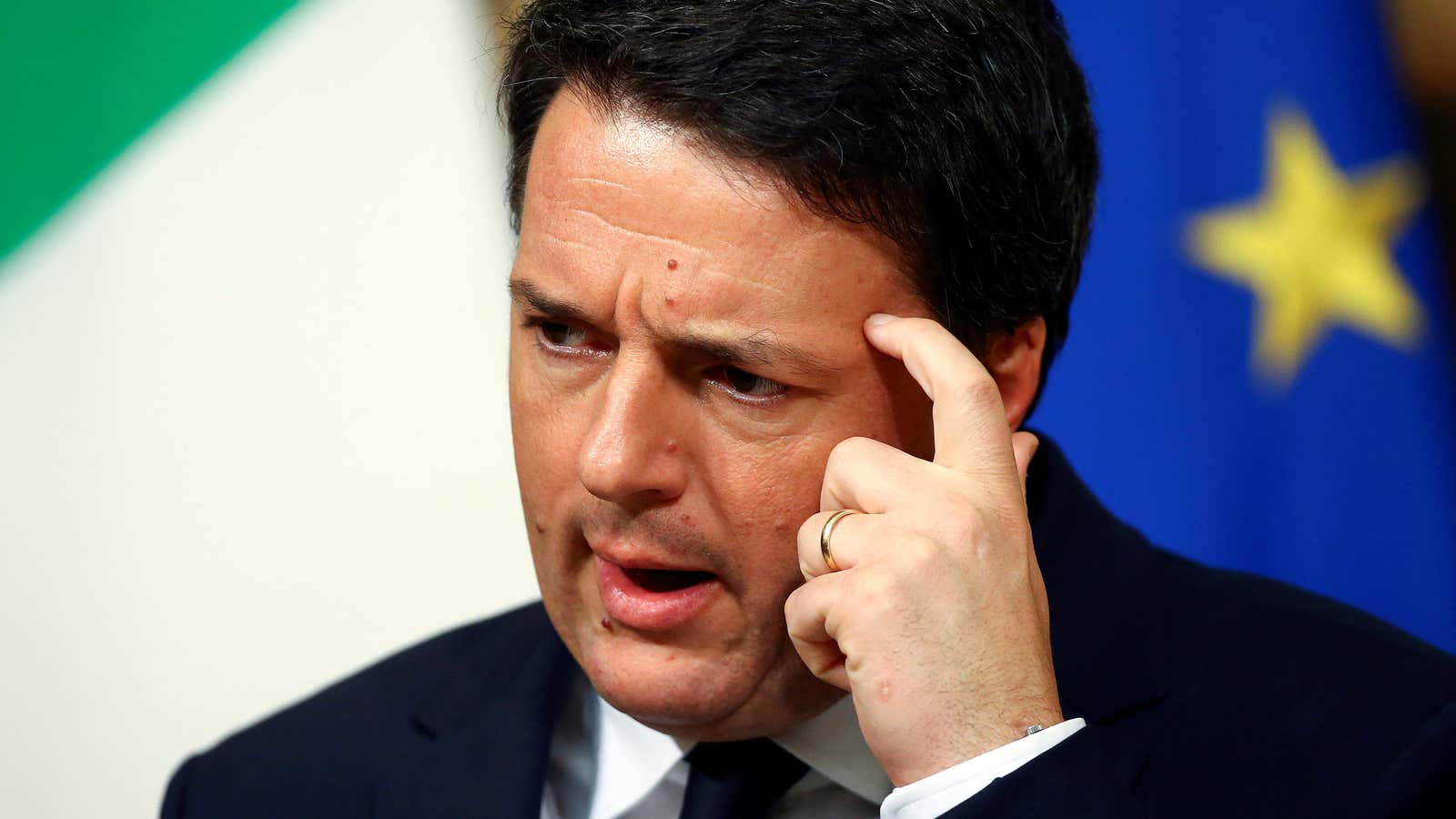If markets are any gauge, the next time a government doesn’t get what it wants in a popular vote will be this weekend in Italy. The prime minister Matteo Renzi has staked his political career and reputation on a constitutional referendum that would make it easier to pass government reforms by taking back some power from the regions and the Senate.
Italy’s stock index has been falling all month on the expectation that Italians will vote ‘no’ on Dec. 4 to protest Renzi’s failure to improve the economy. Renzi, who swept to power as a young, charismatic leader two and a half years ago with promises to shake up Italy’s government and economy, has said he will resign if the referendum fails.
A ‘no’ vote would also torpedo his plans to rescue the banking system. Italy’s banks are weighed down by more than €350 billion ($370 billion) in bad loans—a big reason it’s the weak link in the European economy.
Eight banks are at risk of failing if Renzi is pushed out of government because the political instability will make it harder for them to recapitalize. A fund set up to buy bad loans from the troubled banks is already struggling to raise money. An index of Italian bank stocks has fallen almost 13% this month.
Perversely, Italian stocks rose today. Even the bank stocks. As far as traders are concerned, the vote is a done-deal and now it’s time to look for some bargains again.
Even Banca Monte dei Paschi di Siena, Italy’s (and the world’s) oldest bank, has risen 17%. But this rally is likely to be short lived. As one of the banks in distress, it’s vulnerable to collapse if a plan to recapitalize it isn’t found quickly, regardless of the vote’s outcome.
Erik Nielsen, the global chief economist at UniCredit, one of Italy’s largest banks said on Bloomberg TV that “nobody expects a yes vote so it’s a question of how close it will be.” The main problem now, he said, is, “can Italy address the issue of these medium-sized banks that everyone in the market is worried about?
This referendum is a sure sign that one of Europe’s sicker economies is still struggling to implement deep reforms that would be needed to revive growth. But trouble for Italy’s banks isn’t the start of another financial crisis. If this referendum fails, Italy will bear the brunt of the repercussions.
